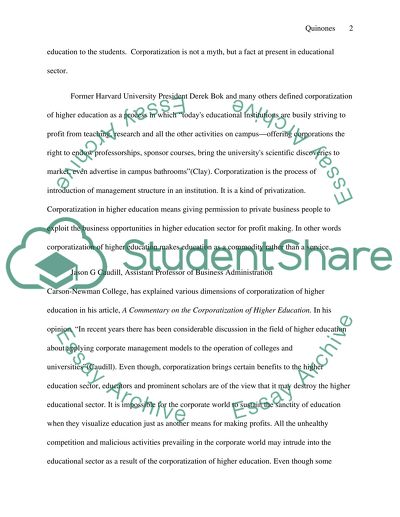Cite this document
(“Corporatization in higher education: Negative effects of Research Paper”, n.d.)
Retrieved from https://studentshare.org/education/1426506-corporatization-in-higher-education-negative-effects-of-corporatization-in-colleges-and-universities
Retrieved from https://studentshare.org/education/1426506-corporatization-in-higher-education-negative-effects-of-corporatization-in-colleges-and-universities
(Corporatization in Higher Education: Negative Effects of Research Paper)
https://studentshare.org/education/1426506-corporatization-in-higher-education-negative-effects-of-corporatization-in-colleges-and-universities.
https://studentshare.org/education/1426506-corporatization-in-higher-education-negative-effects-of-corporatization-in-colleges-and-universities.
“Corporatization in Higher Education: Negative Effects of Research Paper”, n.d. https://studentshare.org/education/1426506-corporatization-in-higher-education-negative-effects-of-corporatization-in-colleges-and-universities.


